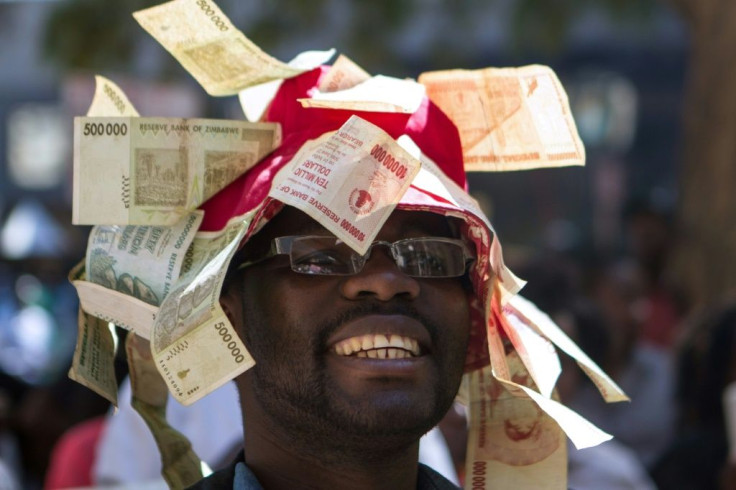Zimbabwe Announces Gold-Backed Digital Currency To Limit The Impact Of Inflation
KEY POINTS
- The digital currency is aimed to be used in the country as a legal tender for transacting within its border
- It is also the government's attempt to help stabilize the local currency
- It is also the country's strategy to help local currency from depreciating further against the U.S. dollar
The Reserve Bank of Zimbabwe (RBZ) has announced it will start issuing a gold-backed digital currency to help people limit the impact of inflation and to stabilize the Zimbabwean dollar.
The gold-backed digital currency is aimed to be used in the country as a legal tender for transacting within its borders, local state media Sunday Mail, citing central bank governor John Mangudya.
The launch of the digital currency in Zimbabwe is also considered by the central bank as its first step in using the gold reserves of the country to anchor its fiat currency.
It is also the country's strategy to help local currency from depreciating further against the U.S. dollar.
"The movements in the parallel market rate are mainly because of the expectations of increased foreign currency supply in the market when the tobacco marketing season opened," Zimbabwe's central bank governor said.
"However, the supply of foreign currency over the past three weeks has been lower than expected. That expectation raised the rates because people thought there will be more money in the market," he added.
"With the start of the tobacco marketing season, most of the funds have been going towards servicing tobacco contractors' obligations. Now, the money will start flowing into accounts of the growers themselves end of this month; that is when most of them will start receiving their US dollar portions," Mangudya told the state media.
"We shall also soon be introducing digital gold tokens to ensure that those with low amounts of local currency are able to purchase the gold units so that we leave no one and no place behind," the central bank governor noted.
Zimbabwe is just one of the many countries whose central bank is planning to launch its own digital currency.
Over the past months, several central banks of various countries all over the world have been doing the same in a bid to boost financial inclusion.
The Federal Reserve, the central bank of the U.S., is set to launch FedNow in July of this year.
Dubbed FedNow, this Central Bank Digital Currency, according to its executive sponsor Richmond Fed President Tom Barkin, will help create "a leading-edge payments system that is resilient, adaptive, and accessible."

© Copyright IBTimes 2024. All rights reserved.






















